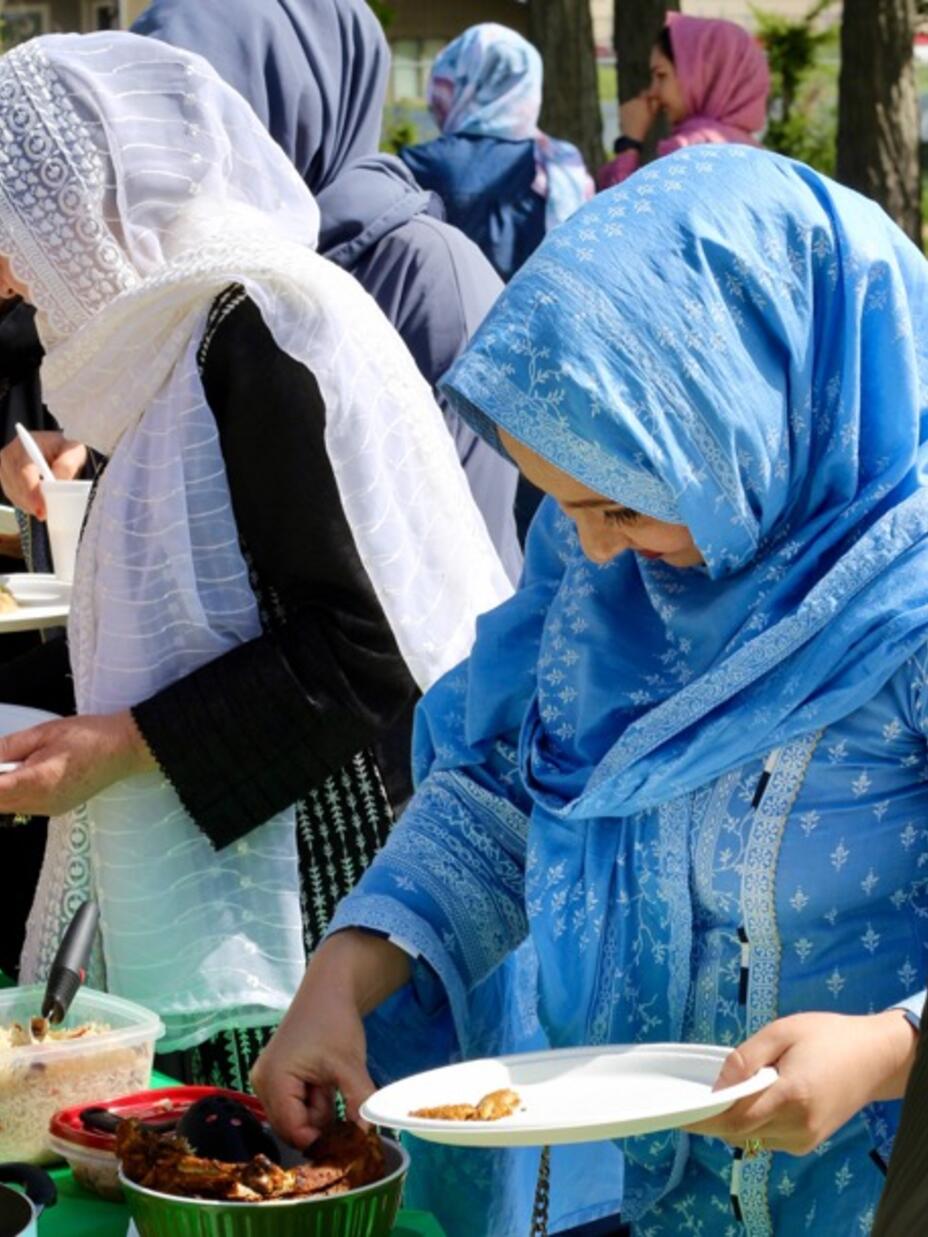The International Rescue Committee (IRC) in Salt Lake City’s health program has a breadth of services that focus on the social determinants of health to ensure holistic care for newly arrived refugee families and individuals. As most refugees arriving to Utah are women and children, the health team works to ensure equitable programming that meets families where they are, including the recent Women’s Health & Healing Groups organized to help refugee women navigate complex systems and circumstances. Within the IRC in Salt Lake City’s health team, the maternal & child health program provides vital support to refugee women and their young children, equipping families with newborns with much-needed supplies, ensuring access to low-income benefits, and ensuring families can navigate prenatal and postpartum appointments and healthcare.
Jonessa White, the health promotion specialist at the IRC in Salt Lake City, began her work at the IRC by expanding and developing the maternal & child health program, specializing in supporting pregnant women and families with young children. From distributing car seats and providing training to families, as a certified child passenger safety technician, running educational classes for pregnant women, to Mother's Day celebrations, the maternal & child health program advocates for women’s empowerment and supports household stability to maintain self-sufficiency by offering support of pregnancies at every step. Central to household stability includes ensuring families can access benefits through the Utah Women, Infants & Children (WIC) program. This federally funded supplemental nutrition program supports income-eligible families with children under five. The WIC program in Utah offers a variety of support systems including nutrition education, breastfeeding support, and supplying women with the means to access nutritious food.

Through the maternal & child health program, the IRC works to ensure families with young children or newborns on the way are able to access WIC assistance by navigating enrollment, scheduling initial intake appointments, and providing transportation for a family’s first WIC appointment at their nearest clinic. The IRC’s team also helps families navigate grocery stores to identify WIC-eligible products and completes public transit orientations to help families access their local WIC clinic on their own. Navigating the digital divide is also top of mind for the maternal & child health program. Recently, the team developed an educational video to show families how to use the WIC Shopper app to apply for benefits at grocery stores.
“Health care coordination and education are essential for pregnant clients to achieve the healthiest pregnancy and infant outcomes,” Jonessa said. For many families arriving to the U.S. as refugees, prenatal support may have been limited or unavailable. The IRC in Salt Lake City is able to help families navigate the complex healthcare system in the U.S., ensuring access to services that lead to healthier outcomes for all members of the family. The WIC program is an integral resource for refugee families to be connected to during the first months of their resettlement journey in Utah.
The IRC’s maternal & child health program offers support to families throughout their pregnancy, guiding clients through the process of scheduling appointments, checking in at the clinic, and getting necessary testing at labs and medication at pharmacies. Additionally, the IRC in Salt Lake City works with generous community donors and partners to gather much-needed items for new and expecting mothers such as new baby cribs, new car seats, strollers, diaper bags, diapers and wipes. These supports are offered until the family feels comfortable navigating them on their own, though the IRC’s health team is available to answer questions and jump in to assist as needed.
Earlier this month, the maternal & child health program organized a Mother's Day celebration for newly resettled Afghan families. The event was held outside of the Khadija Islamic Center to help Afghan mothers and families celebrate their first Mother’s Day in the U.S. “Everyone brought food to share, and we enjoyed a cultural exchange of Afghan and American dishes,“ said Jonessa. The event was also supported by Health Choice Utah, who donated water, and Utah Refugee Connection, who supplied lovely gifts for each of the Afghan women.
“It can be easy to feel overwhelmed and isolated after arriving to a new country,” Jonessa said, “Attendees were able to make new connections and support each other.” The women at the event enjoyed a special Mother’s Day, with a cake-cutting ceremony, Afghan music, and henna, while their children had fun with face paint, balloons, crafts, and games.
A family’s social determinants of health are impacted by the community in which they live and how welcome they feel. The IRC’s health team works to address holistic health by examining the social determinants of health that affect the well-being of newly arrived refugee families and then developing beneficial programming to support a family’s efforts to positively integrate into their new community.
Utahns can support these efforts by donating much-needed supplies or joining our team as a volunteer. Supporting a family as a WIC Volunteer or a Health Access Volunteer ensures a supportive path to self-sufficiency. Supply donations, like baby formula, pack-n-plays, or strollers, for families can be gathered within your community or donated directly via the IRC’s Wish List.